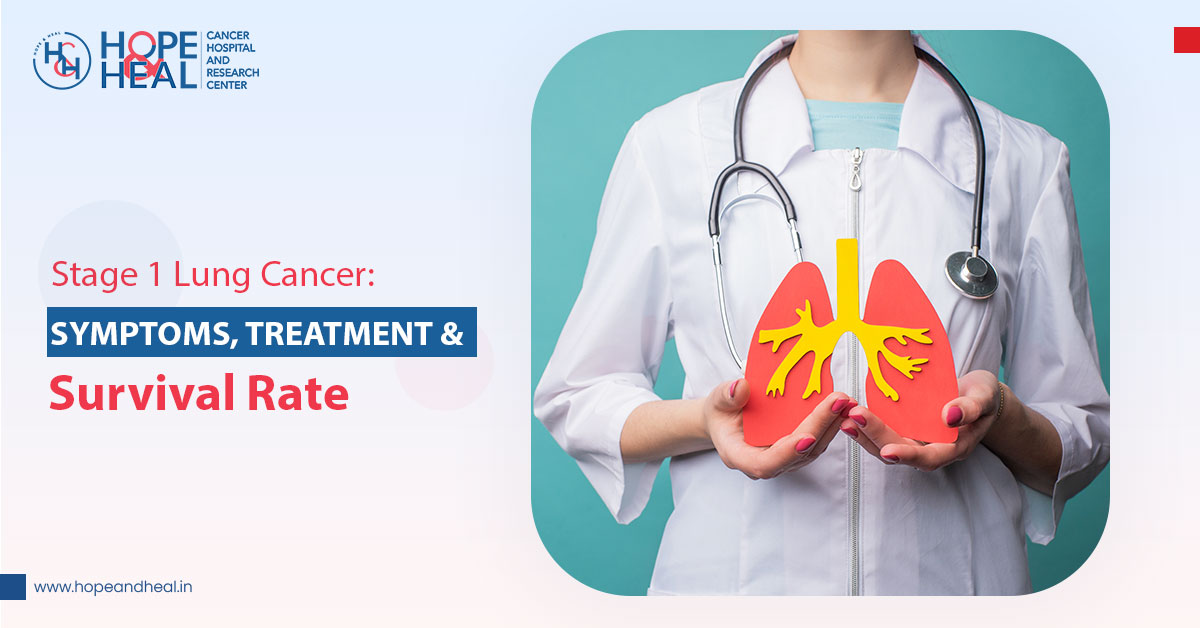Stage 1 lung cancer or early-lung cancer is when the tumour is very small and has not progressed or spread to lymph nodes or other parts of the body, therefore the N and M are not factors. When N/nodes represent the number of lymph nodes involved, M/metastasis addresses the cancer that has spread to other parts of the body.
The majority of stage 1 lung cancers used to be non-small cell lung cancers or NSCLCs, responsible for about 80 to 85 percent of lung cancer cases. Consulting the best lung cancer specialist in Siliguri can be of great help.
Small cell lung cancer or SCLC accounts for 10–15 percent of lung cancer cases, which is a fast-growing type of lung cancer that spreads to other places of the body.
Lung cancer staging refers to a system used by medical experts to rule out the severity of the disease. Stage 1 non-small cell lung cancer is further divided into two categories –
Stage 1a lung cancers are limited to the lungs and are 3 centimeters or less in diameter and Stage 1b lung cancers have a diameter of 3 to 5 cm and have spread to the major airways of a lung, the bronchus, the visceral pleura, or it may cause a lung to collapse.
Further, in stage 1A lung cancer can be classified as 1A1, 1A2, or 1A3, again according to the size of the tumor.
Signs and symptoms of stage one lung cancer
Most early lung cancers do not cause symptoms, ruled out during routine screenings. Here are stage 1 lung cancer symptoms:
· New and persistent cough
· Coughing out bloody mucous
· Shortness of breath
· Chronic cough that worsens
· Ongoing chest pain
· Frequent pulmonary infections
Treatment for stage 1 lung cancer
Treatment options for Stage 1 lung cancer are generally focused on removing malignant cells while preserving lung function as much as attainable. The following are common cancer therapy options fir stage 1 lung cancer:
Surgery
The primary treatment for Stage 1 lung cancer is usually the surgical removal of the lobe of the lung/tumour, often known as lobectomy. This technique, known as a segmentectomy, involves removing one to four segments of the lung lobe.
Radiation Therapy
Radiation therapy may be considered when surgery is not an option. This type of radiotherapy employs specialized equipment to accurately administer radiation to tumors over several days. Some patients with stage 1 lung cancer may receive radiation therapy following surgery.
Chemotherapy
Some patients with stage 1 lung cancer may be treated with chemotherapy following surgery as part of the cancer treatment if they have high-risk factors for recurrence. See the top lung cancer specialist in Siliguri North Bengal for optimum cancer treatment.
Targeted therapy
This cancer treatment employs medications that target specific genes and proteins involved in the growth and behaviour of certain lung tumours may be used following/ in combination with surgery.
The survival rate of stage 1 lung cancer
Early detection of lung cancer typically causes a favourable prognosis. According to the American Cancer Society, people with NSCLC/ non-small cell lung cancer that has not progressed beyond the lung have a five-year relative survival rate of 64%.
According to current statistics or data, 70-92% of persons with stage 1 non-small cell lung cancer (NSCLC) are expected to live at least five years after being diagnosed or further.
Visit the leading cancer hospital and research center near you. Get an early diagnosis and effective lung cancer treatment in Siliguri from the top oncologists.





Comments